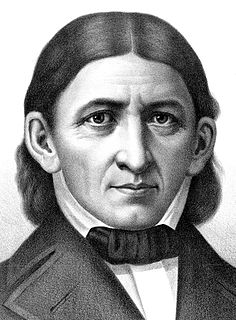A Quote by Erving Goffman
The routines of social intercourse in established settings allow us to deal with anticipated others without special attention or thought.
Related Quotes
I cannot pretend I am without fear. But my predominant feeling is one of gratitude. I have loved and been loved; I have been given much and I have given something in return; I have read and traveled and thought and written. I have had an intercourse with the world, the special intercourse of writers and readers.
Dialogue is really aimed at going into the whole thought process and changing the way the thought process occurs collectively. We haven't really paid much attention to thought as a process. We have engaged in thoughts, put we have only paid attention to the content, not to the process. Why does thought require attention? Everything requires attention, really. If we ran machines without paying attention to them, they would break down. Our thought, too, is a process, and it requires attention, otherwise its going to go wrong.
I am compassionate. I allow my heart and imagination to embrace the difficulties and concerns of others. While maintaining my own balance, I find it within myself to extend sympathy, attention, and support. When they are grieved, I listen with openness and gentle strength. I offer loyalty, friendship, and human understanding. Without undermining or enabling, I aid and assist others to find their strength. I allow the healing power of the Universe to flow through me, soothing the hearts and feelings of those I encounter.
The reason I'm interested in alternative worlds and near-future settings is that it allows us to look at our own limitations in our worldviews. These settings allow me to explore how our world might evolve if we allow individualistic kinds of success to remain our primary value. I'm not trying to be overly bleak, and I don't feel bleak or sad about our world. I want empowered and educated people who understand a lot about the world's challenges to strive to be noble, rather than cynical. I think we still need more champions out there.
Let us, then, fellow citizens, unite with one heart and one mind. Let us restore to social intercourse that harmony and affection without which liberty and even life itself are but dreary things. And let us reflect that having banished from our land that religious intolerance under which mankind so long bled, we have yet gained little if we counternance a political intolerance as despotic, as wicked, and capable of a bitter and bloody persecutions.
Change is difficult and it takes time. It is hard for people to change their own behavior, much less that of others. Change programs normally address attitudes, ideas, and rewards. But the behaviors of people in organizations are also strongly shaped by habits, routines, and social norms. Real change requires new power relationships, new work routines and new habits, not just intent.
The whole trouble lies in that people think that there are conditions excluding the necessity of love in their intercourse with man, but such conditions do not exist. Things may be treated without love; one may chop wood, make bricks, forge iron without love, but one can no more deal with people without love than one can handle bees without care.
Let us protect our children; and let us not allow them to grow up into emptiness and nothingness, to the avoidance of good hard work, to introspection and analysis without deeds, or to mechanical actions without thought and consideration. Let us steer them away from the harmful chase after material things and the damaging passion for distractions... Let us educate them to stand with their feet rooted in God's earth, but with their heads reaching even into heaven, there to behold truth.





































